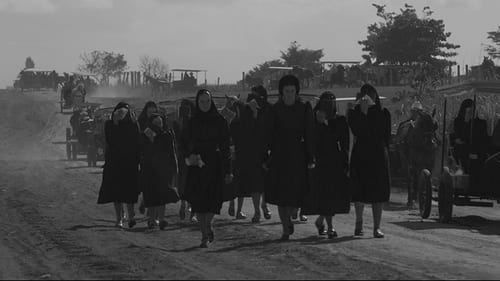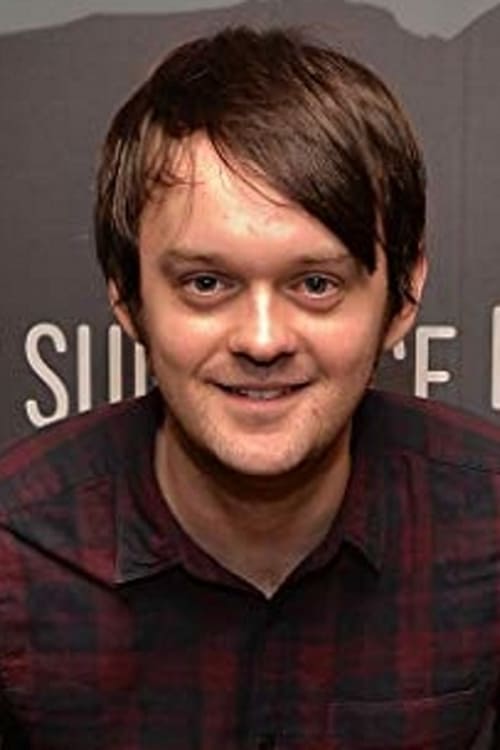
Umbilical World (2018)
Genre : Animation, Horror
Runtime : 1H 19M
Director : David Firth
Synopsis
Best known as the cult creator of the animated web series Salad Fingers (SUFF 2007) David Firth creates morbidly fascinating worlds that delve deep into the darkest recesses of the human psyche. It’s fair to say that once you lay eyes on his shorts, it’s hard to shake their visceral effect in a hurry. Eleven years after first screening his work at SUFF, Umbilical World represents a curation of Firth’s most popular shorts to date, each bookended by brand new transitional animations. Using surrealist techniques to explore depression and mental illness with some of the darkest humour this side of the twenty-first century (his work has been featured on Charlie Brooker’s Screenwipe and Mitchell & Webb), Firth has become one of the world’s most significant, independent animators. Umbilical World is a brain-melting celebration of Firth’s short but prized career — a dog-stew of animated fancies from the scabland toybox that is his mind.

Two first-time filmmakers stop their lives to find out why rhinos are being killed for their horns. Carving out six months for the project, the women quickly find themselves immersed in a world far larger and more dangerous than they had imagined, only emerging from their odyssey four years later.

Point Blank is an investigative documentary on police violence and corruption perpetrated in Rio de Janeiro in the past 20 years. It vividly portrays the most emblematic incidents that occurred during this period through the perspective of family members, witnesses, survivors, and other people who were directly involved in such cases. The film starts with the notorious Vigario Geral Massacre of 1993 and culminates with the executions ordered and carried out by law enforcement agents in 2012 and 2013. These brutal facts are presented based on witness reports that reconstruct the memory of the few who survived the slaughters.

Despite never having played the game before, a group of underprivileged teens emerge as a talented lacrosse team under the tutelage of Coach Bobby Selkin.

The very first documentary about Jane Elliott's educational experiment about discrimination, which was originally produced for ABC News, in which she conducts an unforgettable lesson with her third-grade class in Riceville, Iowa.

In Sutarkhali, a small village on the Bangladeshi coast, a family, having suffered from the endless floods and storms, tries to rebuild its life.

A documentary about the eponymous Puerto Rican boxer

IMAGINERO is an ethnobiography of Hermogenes Cayo, a self-taught woodcarver and painter who lives on the high Andean plateau of Argentina. The film portrays Hermogenes, his wife Aurelia Kilpe, and their children in their Andean lifestyle, as well as Hermogenes' passion for painting, carving, building, and his devotion to the Virgin Mary. Devout, austere and dedicated to craftsmanship, he can make anything from religious figures carved from cactus wood to a working harmonium. Inspired by a trip to Buenos Aires to advocate for land rights, Hermogenes has labored to replicate the style of the capital's grand cathedral and shrine to the Virgin with resourcefulness and skill.

Romania, 1986: Gregor and Vali want to get away. Both need each other, yet there is mutual distrust. One night Gregor finds his doubts confirmed. In the end only hope is left.

The "Field of Magic" is a docu-poem about people living for over two decades in the Buda forest, near the closed down Kariotiskes dump in Lithuania. After four years of work, this film captures the perspective of the dump dwellers. It tells the story about the dissolving community, its uniqueness, daily routine, specific way of life, every-day joys and sorrows.

Mariquilla is a beautiful gypsy who is in love with Lucas, a soldier of the garrison in the Alhambra, but her father wants to marry her with Don Cosme, a rich old clerk for the service of the mayor. Soon, the girl asks for help to the governor of Granada, a gentleman who has always had a great adoration for the girl.

A man with no illusions marries a young woman who is brimming with idealism. She attempts to remake her husband with her overflowing optimism, but the marriage is severely strained when her first pregnancy ends in miscarriage. They separate, and the woman has a number of affairs, but eventually she returns to her husband. They have a daughter, then settle down to a life that is a blend of the husband's worldliness and the wife's idealism.

Lunch Break features 42 workers as they take their midday break in a corridor stretching nearly the entire shipyard.

This documentary chronicles the life of expatriate writer Paul Bowles through archival footage, photos and interviews with the author, who talks about his writing, his friendships with artists such as Tennessee Williams and Aaron Copland and more. Shot in Tangier, Morocco (Bowles's longtime home), this revealing portrait sketches out Bowles's rebellious life story, including his love relationships with men and women, his drug use and his music. - Paul Bowles, Edouard Roditi, Allen Ginsberg

For generations, the Salamanca community of Mennonites has been living in the same modest and rigidly organized way. Modern-day scenes are accompanied by a voice-over narrating a man’s recollections of his youth. “As soon as I close my eyes,” he explains, “I go back to the past, to the moment when I made the choice that shaped my entire life.” Speaking in the Plautdietsch language, he talks calmly of the strong curiosity he felt as a young boy about the world beyond Salamanca and the Mennonite faith – a curiosity for which he paid dearly.

Hellion — "Shum bola", a film on the eponymous story of Gafur Gulyam about the adventures of a little boy, whose restless character makes him different people and life situations.

The third part of Euripides’ trilogy relates Orestes’ confrontation with the people of Argos after killing his mother Clytemnestra and her lover Aegisthus, and his struggle to defend himself and his heritage – with the support of his sister, Electra.

Documentary depicting what happened to the characters in the film Terra para Rose, made by the same director. Shows the life of some 1500 families of landless rural laborers who, for the first time in 1985, occupied an unproductive large landholding, the Annoni plantation in Rio Grande do Sul. After camping out for years in tents, facing down the police and negotiating with the government, the former landless laborers have managed to turn their dream into reality, and are now successful small farmers.

Inspired by the German folktale, Wilhelm, a file clerk, falls in love with a huntsman's daughter. In order to marry, Wilhelm must prove his worth as a hunter and gain her father's approval. Naive and desperate, he makes a deal with a devil named Pegleg.





